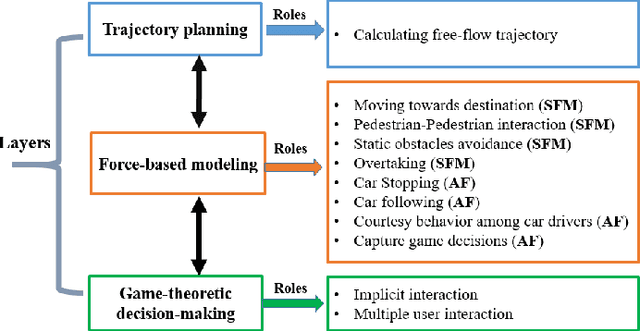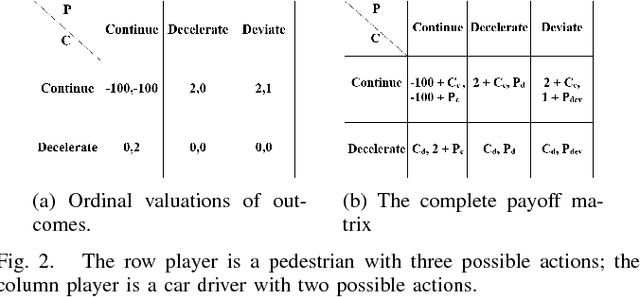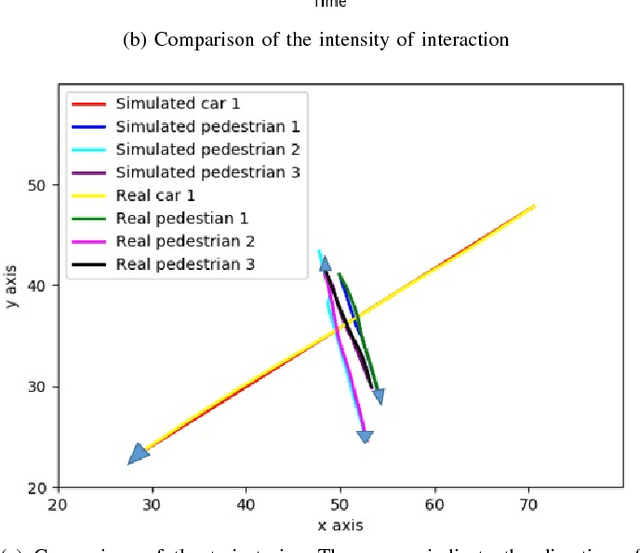Modeling Interactions of Multimodal Road Users in Shared Spaces
Paper and Code
Jul 05, 2021



In shared spaces, motorized and non-motorized road users share the same space with equal priority. Their movements are not regulated by traffic rules, hence they interact more frequently to negotiate priority over the shared space. To estimate the safeness and efficiency of shared spaces, reproducing the traffic behavior in such traffic places is important. In this paper, we consider and combine different levels of interaction between pedestrians and cars in shared space environments. Our proposed model consists of three layers: a layer to plan trajectories of road users; a force-based modeling layer to reproduce free flow movement and simple interactions; and a game-theoretic decision layer to handle complex situations where road users need to make a decision over different alternatives. We validate our model by simulating scenarios involving various interactions between pedestrians and cars and also car-to-car interaction. The results indicate that simulated behaviors match observed behaviors well.
 Add to Chrome
Add to Chrome Add to Firefox
Add to Firefox Add to Edge
Add to Edge